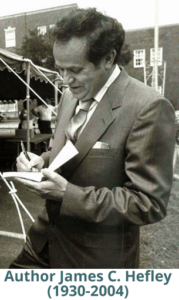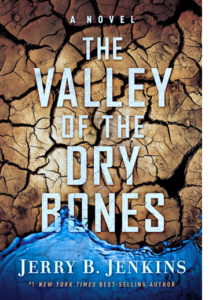Finding Takeaway Value in Every Book You Write: Author Arc Is as Important as Character Arc
Though my first book released in 1974, and my 189th (131st novel) releases today, the thrill has never faded.
Sure, you never forget your firsts:
First New York Times bestseller (Out of the Blue, 1989)
All-time bestseller (Left Behind, 1995)
First to become a movie (Though None Go with Me, 2000)
First Christy Award winner (Soon, 2004)
Personal favorite (Riven, 2008)
But despite the volume of my output, somehow opening that package of new books from the publisher has never become routine. That may stem from how privileged I feel to make my living doing what I love.
 Also, advice from one of my writing idols put me on the right course early. When I was a 15-year-old high schooler, I finagled an introduction to journalist and author James C. Hefley, who generously counseled me when he learned I coveted a career like his.
Also, advice from one of my writing idols put me on the right course early. When I was a 15-year-old high schooler, I finagled an introduction to journalist and author James C. Hefley, who generously counseled me when he learned I coveted a career like his.
He let me peruse his writing office and bulging library, telling me, “Writers are readers, good writers are good readers.”
He also advised me to make sure I treated every assignment as a learning opportunity. “That way each article and book can be better than the last.”
The more books I’ve written, the tougher that has become. But no one, certainly not Hefley, said it would be easy. That’s what makes it a fun challenge.
And I try to keep track of what I learn from each book, because it often surprises writing students that even an old dog like me can learn new tricks.
The novel that debuts today is set ten years into the future in California, where a band of 16 holdouts remains, despite that the U.S. Government has condemned the state after an unrelenting 17-year drought. Think The Walking Dead meets Left Behind.
 So what did I learn from writing it?
So what did I learn from writing it?
To emulate the new trend of episodic TV series and offer satisfying setups and payoffs while maintaining the book-length story structure.
To maintain a single third-person limited point-of-view perspective character for the entire novel. My main character, Zeke Thorppe, serves as my camera for every scene throughout. (And his last name is an anagram. Enjoy the puzzle.)
I covered 10 years in a prologue of just 7 pages that began with a tragedy and ended with my my hero and his cohorts in condemned California, living underground.
The holdouts had answered a call to missions from their pastor—not to go, but to stay when 99 percent of the population was displaced by the condemnation of the state.
My goal, my challenge, was to do justice to all 16 characters—primarily my lead, of course—but the rest also needed their time on stage, and in more than a perfunctory way.
I see too many manuscripts in which it’s clear the author has worked to keep things even among the cast of characters. There’s no need for that. It must come naturally or not at all.
If scenes don’t arise for certain role players, they may be unnecessary. Otherwise, don’t feel obligated to become a stage director.
Just because I painted a dystopian setting, I was determined not to allow the novel to become so action-heavy that it couldn’t be character-driven.
With the holdouts living in an underground compound in small family groups, their relationships made for natural drama within the overall story.
Though I am a veteran in the inspirational market, and this is aimed primarily at that audience, I experimented with a more experiential practice of faith than even I am familiar with.
My main character comes to believe he is hearing directly, audibly from God, and eventually this is proved true.
My major learning curve came in creating a certain dialect without slowing the reader with too many peculiarities of punctuation.
Naturally, the marketplace will decide whether I have succeeded in all this, and then I will have really learned something.
What are you doing to learn something with your newest writing project? Tell me below.
The post Finding Takeaway Value in Every Book You Write: Author Arc Is as Important as Character Arc appeared first on Jerry Jenkins | Write Your Book.



